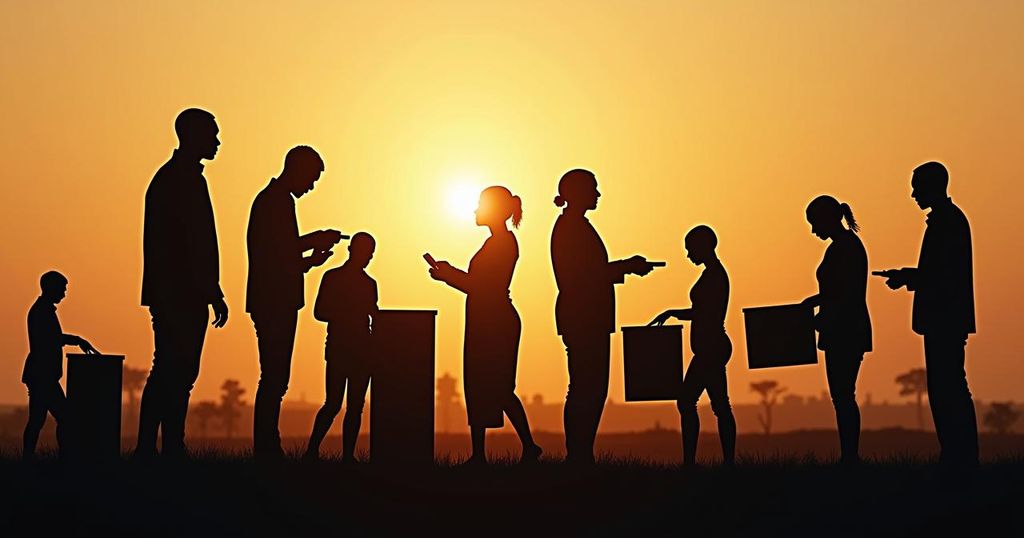Mozambique Elections 2024: A Pivotal Moment for Leadership and Governance
Mozambique is set to vote in presidential elections on October 9, 2024, with the ruling party, Frelimo, aiming to continue its 49-year reign since independence in 1975. Daniel Chapo represents Frelimo, while independent candidate Venancio Mondlane poses a significant challenge. Voters will also elect members of Parliament and provincial governors amidst ongoing security concerns related to a jihadist insurgency.
Mozambique will conduct presidential elections on October 9, 2024, with expectations that the ruling Front for the Liberation of Mozambique (Frelimo) will secure its position in power for a remarkable 49 years since the nation gained independence from Portugal in 1975. Daniel Chapo, aged 47, represents Frelimo, succeeding President Filipe Nyusi, who has reached the limits of his two-term tenure. Analysts suggest that the primary challenge to Chapo’s electoral bid will likely come from independent candidate Venancio Mondlane, aged 50, who has garnered substantial support due to his focus on the issues affecting young Mozambicans grappling with poverty and unemployment. In addition to electing a president, voters will also determine the composition of Parliament and choose provincial governors. This election occurs within the context of Mozambique’s turbulent history, including a protracted civil war that concluded in 1992 and ongoing violence fueled by a jihadist insurgency in the northern region of Cabo Delgado, which has displaced more than half of its 1.3 million residents. Both leading candidates, Chapo and Mondlane, have pledged to resolve the security crisis in Cabo Delgado. Following the closure of polls, vote counting will commence immediately, with preliminary results expected shortly thereafter. Nevertheless, the credibility of the electoral process faces scrutiny, particularly regarding Frelimo’s historical allegations of electoral misconduct, including ballot manipulation in the previous local elections where they reportedly won 64 out of 65 municipalities. Regional and international observers, including those from the European Union, have been deployed to monitor the elections. Frelimo has historically maintained a strong grip on power, initially establishing a one-party state post-independence. The main opposition, the Mozambique National Resistance (Renamo), continues to challenge Frelimo despite a reduction in popularity. Renamo’s current leader, Ossufo Momade, is also running for president as tensions between the two parties remain delicate despite a peace agreement signed in 2019. Mondlane’s emergence as an independent candidate, having distanced himself from Renamo, calls attention to the sentiments of youthful voters disillusioned by economic hardships. Mozambique is characterized by its beautiful coastline and lucrative tourism potential, but the region has recently faced challenges such as cyclones and drought, compounding the economic crisis exacerbated by a government scandal involving the embezzlement of over $2 billion in foreign loans.
Mozambique’s political landscape is heavily influenced by the history of Frelimo, which has ruled since independence in 1975 and fought against Renamo during a devastating civil war. Having transitioned from a one-party system to a multi-party democracy by the 1990s, the political environment remains fraught with tensions between Frelimo and Renamo, alongside challenges presented by economic struggles and security threats arising from insurgent activities. The upcoming elections are pivotal as they not only determine the presidency but also signal public sentiment towards the ruling party amid accusations of electoral malpractice and governance crises.
In summary, Mozambique’s upcoming presidential election represents a critical juncture for the nation, potentially allowing Frelimo to extend its dominance for nearly half a century. While Daniel Chapo aims to succeed President Nyusi, independent candidate Venancio Mondlane seeks to harness the frustrations of younger voters facing economic difficulties. The electoral process will be closely monitored due to past allegations of impropriety, and the outcome could significantly influence Mozambique’s path toward political stability and economic recovery.
Original Source: apnews.com




Post Comment